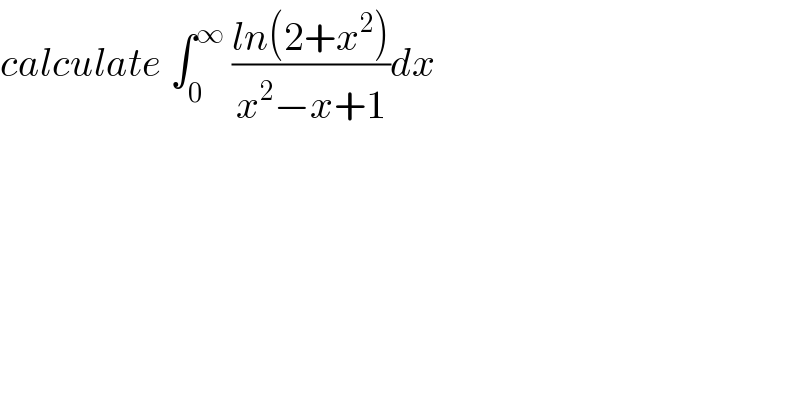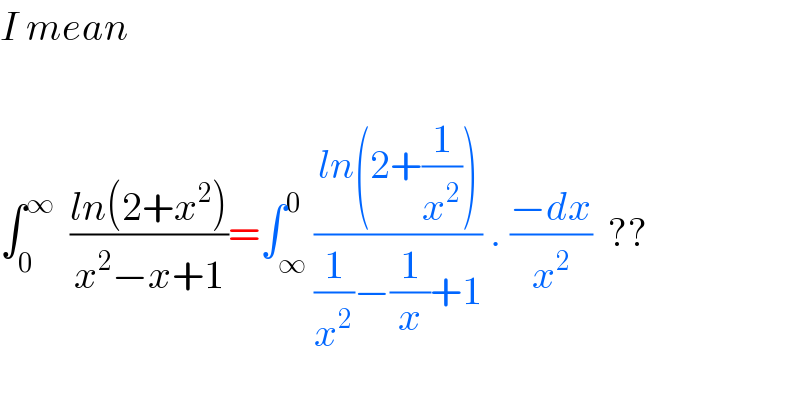
Question and Answers Forum
Question Number 73178 by mathmax by abdo last updated on 07/Nov/19

Answered by mind is power last updated on 07/Nov/19

Commented by mathmax by abdo last updated on 07/Nov/19

Commented by mind is power last updated on 07/Nov/19

Commented by aliesam last updated on 15/Dec/19

Commented by aliesam last updated on 15/Dec/19

